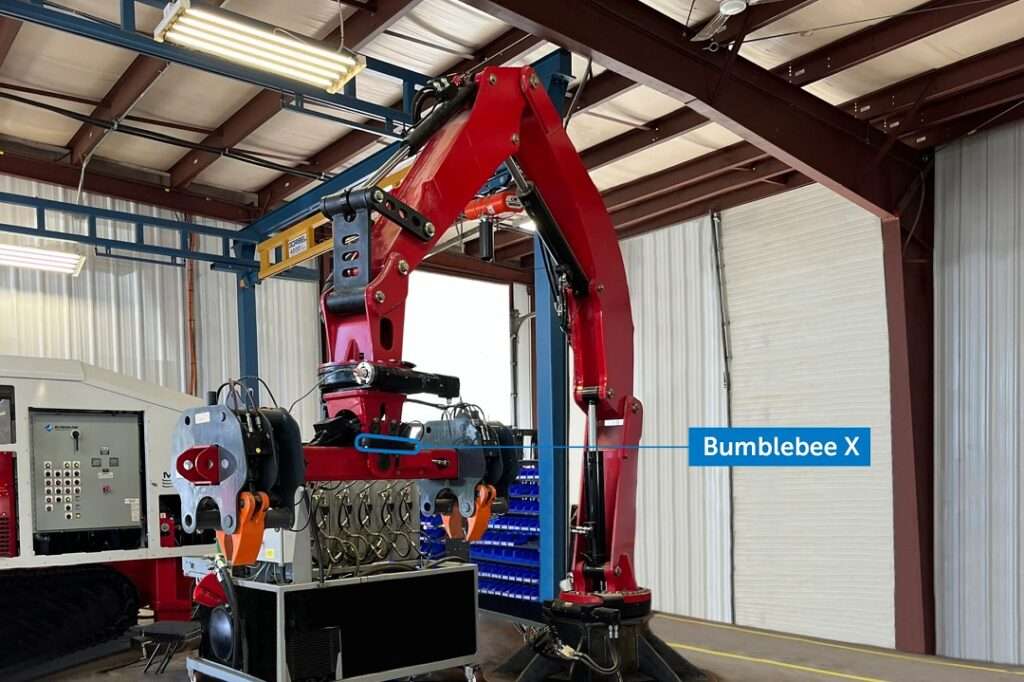- Pune based DY Patil International University launches Futuristic BTech Bioengineering Programs
- Starting its operations in 2018, University launched their BTech Computer Science programs in 2019, which was appreciated by AICTE and adopted by several institutions
- Digital Learning to take the central stage post COVID19, physical infrastructure investment may decline
Pune headquartered DY Patil International University (DYPIU) is bringing an exhaustive shift in our education system by introducing advanced technical courses that will enable India to skill up for the future. As you are aware of the fact that, the recent outbreak of COVID19, Technology emerged as the shield between humans and coronavirus and numerous successful engineers/scientists/medical experts stand behind such extraordinary developments.
COVID19 showed up all of a sudden, became a global pandemic that humanity is still fighting out. We will never know what is awaiting in the future, and to be prepared for such upcoming circumstances or pandemics we absolutely need to strengthen future engineers. For the economy to run a sustainable way of conducting business is necessary, and in the last couple of decades, we witnessed how technology has driven our way forward. Amid COVID19, DYPIU launched Multitrack Futuristic BTech (Bioengineering) Program, a brainchild of its founding Vice-Chancellor Dr. Prabhat Ranjan with whom we had an exclusive interaction, excerpts.
From Nuclear Fusion to Academic
“We are in a phase where technology is changing very quickly, beyond our imagination and we wanted to ensure that we cover all upcoming areas which weren’t covered traditionally in Bio-Engineering undergraduate programs”, shared Professor Ranjan discussing the new courses. Unlike other BTech bio-engineering programs, this program offers a multitrack specialization, all courses will start with foundational courses common to all tracks till the 5th semester. From the 6th and 7th semesters, it would have 4 track specific subjects which will include: Biochemical Engineering, Biomedical Engineering, Cell and Tissue Engineering, and Food Biotechnology.
A Scientist, Educationalist, and Technocrat Professor Prabhat Ranjan was heading TIFAC, India’s technology think tank before taking the responsibility of heading newly formed DY Patil International University in 2018. Alumni of IIT Kharagpur and Delhi University Dr. Ranjan received his Ph.D. from the University of California, Berkeley where he did research work on Nuclear fusion during 1983-86. Back in India, Dr. Ranjan continued his research in Nuclear Fusion are at Saha Institute of Nuclear Physics, Kolkata, and at Institute for Plasma Research, Gandhinagar. His contribution to ADITYA as the Project Leader of the largest operational Indian Fusion Reactor at the Institute of Plasma Research is highly regarded and played a major role in India’s Nuclear Fusion Program.
Prior to TIFAC, he worked as a Professor at Dhirubhai Ambani Institute for Information and Communicational Technology, Gandhinagar from 2002-13. During his tenure at TIFAC, an autonomous body under the Department of Science and Technology, Government of India, he understood that technology is growing at a much faster rate and it’s unpredictable. Here he prepared the “Technology vision 2035” document, a vision for India in coming years and focussed on the quality of life of Indian and the role of Technology in achieving that.
He felt the need to bring appropriate mechanisms to continuously make changes in the education system to prepare the student for this ever-changing Technology landscape. “The distant future is very important and I wanted to make sure whatever planning we have done in TIFAC, we follow it in the education pattern”, says Dr. Ranjan. DY Patil International University got its approval from Maharashtra Government in the middle of March 2018, and the management found its leadership in Dr. Ranjan and appointed him as the first Vice-Chancellor.
Skill for Future
DY Patil is a group of a well established educational group in India, with its major campuses across Maharashtra. DYPIU is established at Akurdi, Pune which comes under Pimpri-Chinchwad Municipal Corporation. Imparting knowledge to more than 11000 students, this DY Patil campus runs 11 colleges, among which maximum colleges are affiliated to Pune University. When DYPIUy started functioning in 2018, programs such as Design, Journalism and Mass Communication, Commerce, BBA, Biotechnology, etc were initiated.
Engineering required deeper introspection and the Management decided to begin its BTech courses from 2019 academic session. Professor Prabhat Ranjan stated, “I decided to focus first on computer science and engineering since this is the sector that is changing very fast and no sector is left untouched by this technology”. While developing the very first CS engineering course, he followed the DA-IICT curriculum and after discussing with the group of faculty, he came out with the very first template of the program
The uniqueness of the program lied in the multitrack specialization, according to which once a student joins the CS program, the first 2 years would be a common revamped curriculum, but from the 3rd year they would start taking courses related to tracks, they chose to study. Altogether there were 10 tracks available and in the end, they will receive the degree as ‘BTech in Computer Science and Engineering with whatever specialization they will have'.
While developing the courses, Dr. Ranjan shared the template on social media (Facebook, LinkedIn) and received a huge response worldwide. In fact, AICTE shared an appreciation letter about this unique initiative and even it formed a committee to achieve a revamped CS engineering curriculum program in the country, which he was made a member. Many other institutes adopted similar programs.
With the successful launch of the CS program, this year Dr. Prabhat along with the faculty members planned and launched a Bio-Tech program in a way, similar to the CS programs. He said that with the growing demand worldwide they re-casted it with four specialization tracks: Bio-Chemical Engineering – Bioprocess engineering catering to large-scale cell growth and protein production, Bio-Medical Engineering – Medical and assistive devices including robotics and instrumentation, Cell and Tissue Engineering – Cell level manipulations, tissue engineering, biomaterials, and synthetic biology and Food Biotechnology – Food-related bio-modifications and technological developments. Cellular Agriculture is likely to revolutionize food production in many ways.
Likewise earlier, the students will join under BTech in Bio-engineering and will have common subjects for 2 years and after that, they can divide themselves according to the preference of tracks. “In other Institutions, students have to make blind choices of specialization while taking admission, but in our University, the students can learn the foundation courses so that they can understand what these specializations are and then they can choose accordingly”, adds Dr. Ranjan.
We are familiar with the fact that food can be either obtained through agriculture or animals but with the advancement, in the field of food biotechnology, such things are now possible to create in labs. As of now meat, milk, eggs, etc have been made in labs worldwide. Similarly, advancement in the field of Bio-medical prompted the improvement of gadgets that assists people with disabilities.
To cope up with the growing techno-trends, Professor Ranjan introduced the diversified specialisations in order to provide services in these fields in the forthcoming future
“I was already planning to launch the biotech engineering course but the outbreak of COVID19 somehow ignited the urgency. As I realized that the coronavirus vaccine needs to be developed in a lab and even people are looking at the biotech sector for solutions, I thought it to be the perfect time to launch the programs”, says Dr. Prabhat Ranjan.
Bio-Engineering & Startups
Apart from this, Dr. Ranjan mentions that he feels there is a lot of opportunities for bioengineering students to become entrepreneurs and therefore the unique structure of the course also focuses on teaching the students ‘Technology promotion’ along with the features of leadership. He emphasized that they do not follow the instructive structures laid by Institutions but they make new programs that will be significant for the growth of India.
DY Patil University wants to set a trend, which will influence other educational institutes. “We are not following the trend yet attempting to make it, with the goal that different institutions implement it further. It is for the Welfare of the whole student community and not just for our students”. The launch of BTech bio-engineering received good response and feedback from the students and parents. Most importantly University is getting encouraging responses from industry people who are coming forward to become a partner in this program.
Digital Learning – a core factor in DYPIU
Digital Learning is trending with the spread of COVID19, educational institutions were the first to be shut down much before the lockdown. This sure has created a chaotic condition for the students, and college administration, and now to bridge the gap various Institutions are focusing on digital learning. But much before COVID19, Dr. Ranjan said DYPIU was ready with its Digital Learning project. “We were almost ready with our online teaching system, 90% work was over with orientation to our faculties, and the sudden shutdown forced to initiate Digital Learning faster than expected”, said Dr. Ranjan.
Dr. Ranjan added that with his prior experience in Delhi he figured out that nowadays students are having multiple sources of knowledge. So one of the major steps the University took from its beginning was to invest more in digital infrastructure than physical and human infrastructure. But the sudden collapse of the entire system due to COVID19 put a temporary stop in his work. For Dr. Ranjan, the COVID19 situation is like the childhood game called 'statue', in which you stand still wherever you are.
On 14th March, on the foundation day of DY Patil International University, there were several events planned, however, they had to cancel all the upcoming events due to the pandemic situation. Within 5 to 7 days of the lockdown, they comprehended that they need to look at a long-term solution, as this is not a matter of a couple of days. Gearing up, they began online classes and started providing online assignments but it appeared to have loopholes as many of the students faced connectivity issues, internet problems, etc.
But overcoming these problems one by one, they sorted out issues and now almost 95% of the students are connected to the faculties, and the University is looking forward to conducting online examinations for possible modules. “The concept of working from home is going to be the new normal. I have seen in the US the concept of online examination, classes, etc and being a vast country it will be difficult in the beginning but with time it will get normal, once we get used to it” concludes Ranjan.
Concluding our interaction Dr. Ranjan said he is optimistic about the future and believes COVID19 also will have its positive effect on people across the globe. For more information and industry collaboration you can reach Professor Prabhat Ranjan at http://www.ranjan.in/








